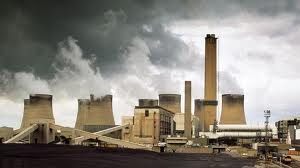Global warming hits a hot button among liberal activists in the United States, but it gets an icy reception among conservatives and a lukewarm one from the general public in many nations. Globally, just 42 percent of the people participating in Gallup surveys in 111 countries last year considered the controversial concept as either a “somewhat serious” or a “very serious” threat.
Gallup says the findings may reflect increasing skepticism about climate change.
The findings come even as the
U.S. Supreme Court is pondering a six-state lawsuit against five of the country's largest power companies in which the states want to sue the companies to force them to curb their carbon dioxide emissions. During an April 19 hearing before the court, several justices expressed skepticism about taking up the case, saying it's a matter for U.S. Environmental Protection Agency to address instead.
The potentially landmark environmental case involves the states' 2004 lawsuit claiming that the utilities are contributing to climate change and creating a public nuisance. Its consequences, such as rising seas, reduced crop yields and destruction of some hardwood trees, harm people, the states contend.
 |
The U.S. Supreme Court is considering whether to take up the issue of global warming in a case regarding whether six states could sue to force five of the country's largest power companies to reduce their carbon dioxide emissions. (Getty Images Photo)
|
In the Gallup surveys, although the 42 percent figure for worldwide concern is a 1 percent increase from surveys in 2007-08, the 2010 query found that the concern of Americans and Europeans had dropped. Meanwhile, more Latin Americans and sub-Saharan Africans are fretful, according to
Gallup's poll analysis.
In the previous surveys, 53 percent of Americans viewed global warming as a “somewhat serious” or a “very serious” threat, but that dropped to 43 percent last year, Gallup reports. In Western Europe, the worry dropped from 66 percent to 56 percent and, in Eastern and Southern Europe, the distress fell from 67 percent to 60 percent.
The highest level of fretfulness was then, and is now, in what Gallup describes as Developed Asia, at 79 percent and 74 percent, respectfully. Those levels are more than double the uneasiness in Developing Asia, which was 31 percent in both tallies, Gallup says.
Latin Americans' disquiet rose from 67 percent in 2007-08 to 73 percent last year. And, although Sub-Saharan Africans' apprehension rose 5 percentage points, it ranks among the lowest in the world, at 34 percent, Gallup found.
"World residents' declining concern about climate change may reflect increasing skepticism about global warming after Climategate and the lack of progress toward global climate policy," Gallup's analysis notes. "The drops also may reflect the poor economic times, during which Gallup research generally finds environmental issues become less important."
Underscoring the polarizing controversy about whether global warming exists, Gallup observes: "The feuding between rich and poor nations at climate talks in Bangkok in April demonstrates the obstacles that remain before the world can agree on a climate policy. Gallup's data show that fewer Americans and Europeans, whose nations are central players in these talks, feel threatened by global warming today than they did in recent years. However, majorities in many of these countries still see climate change as a serious threat, which means the issue remains personally important to them."
© 2026 Newsmax. All rights reserved.